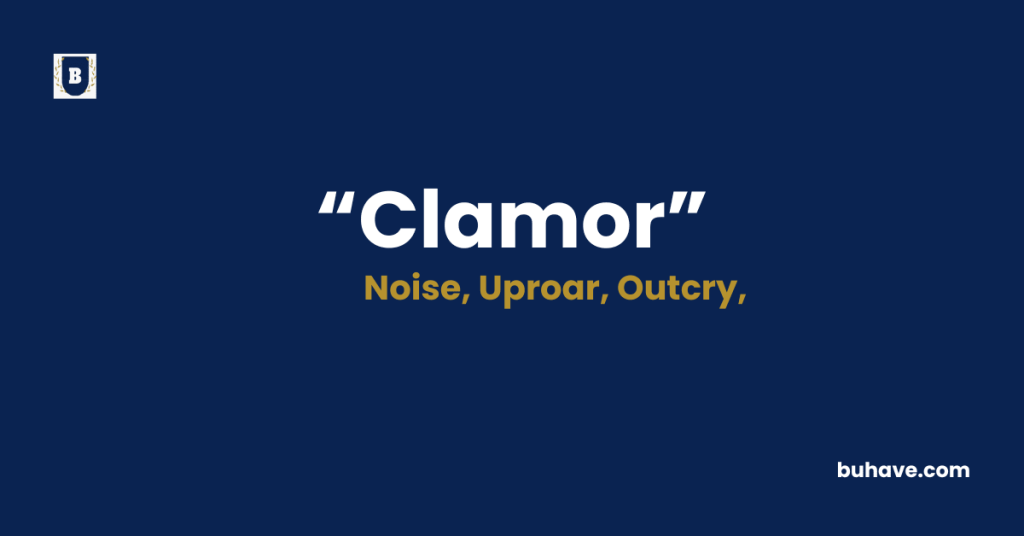The word ‘Clamor’ (Noun) refers to a loud and confused noise, often created by a crowd shouting or demanding something. In this guide, you’ll learn the full meaning, definition, etymology, synonyms, antonyms, and real-life examples of how to use ‘Clamor’ effectively in speech and writing.
Clamor Explained in Depth
A complete and detailed guide to the word ‘Clamor’ including meaning, definition, examples, etymology, synonyms, and antonyms.
Meanings of Clamor
Clamor means a loud uproar or outcry, usually from a group of people expressing protest, demand, or excitement. As a verb, it means to shout loudly or make a strong public demand. Clamor is often associated with intensity, urgency, or chaos.
Definition
Clamor is defined as a loud and continuous noise, especially of people shouting. It can also refer to a strong expression of public opinion or protest. As a verb, it means to demand or complain noisily and persistently.
Etymology
The word “clamor” comes from the Latin clamor, meaning “a shout or outcry,” derived from clamare, meaning “to cry out or call.” It entered English in the 14th century and has kept its strong connection to loud vocal expressions.
Example Sentences
- The clamor of the cheering crowd filled the stadium.
- Protesters clamored for justice outside the courthouse.
- There was a clamor in the classroom when the fire alarm rang.
- Fans clamored to get a glimpse of the celebrity.
Clamor Synonyms
- Uproar
- Outcry
- Roar
- Commotion
- Noise
- Din
- Shouting
- Racket
- Hullabaloo
- Demand
Clamor Antonyms
- Silence
- Calm
- Quiet
- Stillness
- Tranquility
- Hush
- Peace
- Serenity
- Order
- Whisper
FAQs about Clamor
Here are some frequently asked questions (FAQs) about the word “Clamor”
1. What does “clamor” usually refer to?
It usually refers to loud shouting, public outcry, or intense noise from a group expressing strong feelings.
2. Can “clamor” be used as a verb?
Yes. As a verb, “clamor” means to shout loudly or demand something forcefully and persistently.
3. Is clamor always negative?
Not always. While it often suggests chaos or protest, it can also describe excitement or passionate support.
4. How do you use “clamor” in a sentence?
Example: “The students clamored for longer recess time.” or “The clamor from the streets grew louder as the parade passed by.”
5. Is clamor the same as noise?
No. All clamor is noise, but not all noise is clamor. Clamor involves people, emotion, and often purpose, like protest or demand.

















